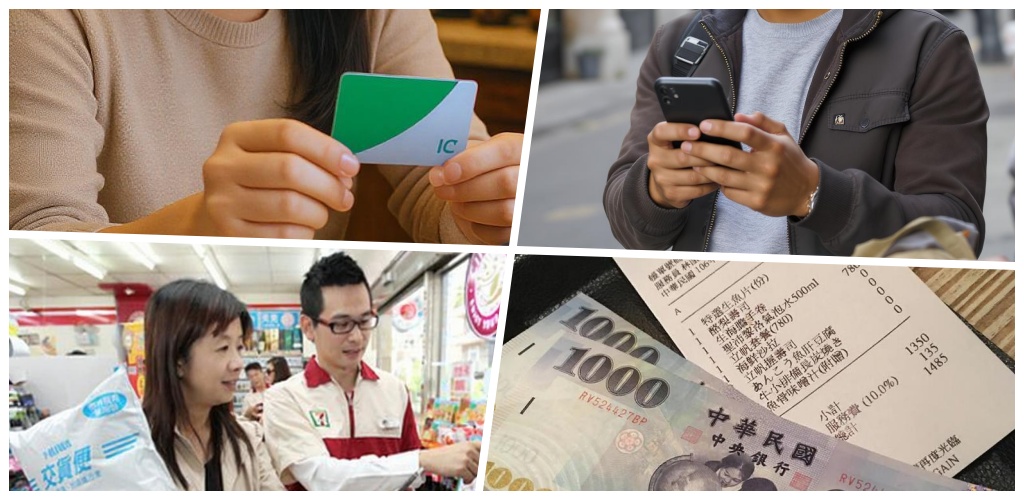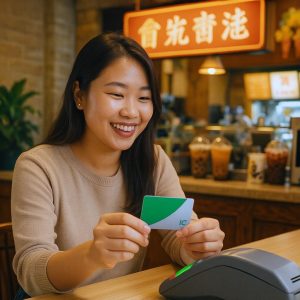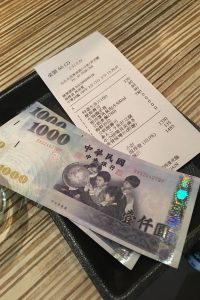When I moved to Taiwan, I didn’t expect it to rewrite the way I handle money. But within weeks, daily errands and purchases revealed patterns—quiet habits that started to reshape how I save, spend, and even give. It’s a blend of old-school cash culture and smart financial tech, and it taught me something I didn’t know I needed: financial mindfulness.
Here are 10 ways Taiwan transformed my approach to money—changes I now carry into every wallet decision.

Prioritizing Cash for Everyday Purchases
Despite all the tech around, Taiwan still runs on cash, especially in neighborhood eateries and night markets.
- I learned to always carry enough bills and coins—just enough for lunch, snacks, or a spontaneous buy.
- Instead of obsessing over every peso saved, I created tiny “cash buckets” for categories like transport, food, and treats. It made budgeting less stressful—and more realistic.
Personal win: I stopped scrambling for ATMs and started enjoying guilt-free fishball soup.
Embracing IC Cards for Micro-Transactions
EasyCard and iPass are everywhere—from MRT stations to bubble tea shops.

- I top up when the balance hits below NT$200. No need to fumble with coins or wait in line.
- Keeping a tracker on my reloads helped me see how NT$25 here and NT$35 there can stack up fast.
Personal win: I treat these cards like prepaid fun credits—tiny spends, fully accounted for.
Relying on Convenience Store Banking
7-Eleven and FamilyMart aren’t just for snacks—they’re mini-banks.

- I pay bills, buy load, and even send remittances while grabbing a sandwich.
- Weekend banking? Solved. I just scan my barcode, click a few buttons, and I’m done in minutes.
Personal win: No more half-days wasted at crowded bank branches.
Letting Go of Tipping Obligations
In Taiwan, there’s no tipping culture. The amount you see is the amount you pay.

- I stopped overthinking how much to leave after meals.
- I repurposed my mental tipping budget into a “treat myself” fund for occasional boba or bookstore splurges.
Personal win: More clarity, fewer awkward moments at the cash register.
Automating Savings via Salary Deductions
Many employers offer automatic savings deductions—easy to set up, easier to forget.

- I arranged to send 5% of my monthly pay to a high-interest postal savings account.
- Because I don’t “see” it, I don’t spend it—and my emergency fund is finally growing.
Personal win: I reached my first NT$50,000 in savings without even trying.
Treating Charity Boxes as Digital Round-Ups
The little donation boxes beside every register got me thinking.
- I started rounding up every small purchase to the nearest NT$10.
- The leftover change? It goes into a monthly fund I donate to a local shelter or cause.
Personal win: Over NT$5,000 donated in spare change last year—effortless giving, daily gratitude.
Using Post Office Financial Services
Taiwan’s post offices offer more than stamps—they’re low-key financial hubs.
- I opened a savings account there, which gave me better interest than my regular bank.
- I also checked out their basic insurance packages—affordable and practical.
Personal win: Financial tools that felt out of reach suddenly became accessible.
Trusting QR-Code Payments for Security
QR payments are now second nature, even at wet markets.
- I use JKoPay and Apple Pay for everything from groceries to meals.
- Every purchase logs a receipt instantly, helping me track expenses and avoid cash loss.
Personal win: No more losing track of what I spent at the night market last night.
Adopting a Monthly “Budget-Block” Routine
Night markets taught me discipline—and envelope budgeting.
- I divide my monthly leisure fund into four envelopes (one for each week).
- If I spend too fast, I wait it out with free fun—like riverside walks or window shopping.
Personal win: I enjoy more, spend less, and still get my fried chicken fix.
Viewing Small Change as an Environmental Asset
One NT$10 coin at a time, I turned recycling into a money habit.
- Taiwan’s bottle-return machines give small cash rewards per item.
- I now sort my recyclables, knowing I’m cleaning up and saving.
Personal win: I earned enough refunds to cover snacks for a week—plus cleaner streets.
Beyond the List: How Taiwan Reshaped My Financial Mindset
These habits didn’t just help me adapt—they made me rethink what “handling money” actually means. It’s not about hoarding or hyper-budgeting—it’s about balance, awareness, and choosing systems that work with your lifestyle.
Here are a few more things that helped deepen my financial stability in Taiwan:
- Open a local bank account: Better access to ATMs, transfers, and competitive interest rates.
- Explore employer-linked savings and investments: Some companies offer fund options tied to your salary.
- Use the government’s e-invoice lottery: Every official receipt is a potential prize. I once won NT$200!
My Biggest Financial Shift in Taiwan (Plus a Quick Recap)
Looking back, each of these habits taught me something practical. But one change, in particular, was life-changing—automating my savings through salary deductions. It removed the friction from a habit I struggled with for years. Below is a quick summary of all ten habits and what they helped me improve:
| Habit | Key Impact |
| Prioritizing Cash | Preparedness for daily life |
| Using IC Cards | Tracking micro-expenses |
| Convenience Store Banking | Time saved from queues |
| No Tipping Culture | Simpler budgeting |
| Automated Salary Deductions* | Effortless savings growth |
| Charity Round-Ups | Purposeful micro-giving |
| Post Office Financial Services | Accessible financial tools |
| QR Code Payments | Secure, trackable transactions |
| Budget-Block Routine | Disciplined leisure spending |
| Recycling for Change | Eco-friendly saving |
Why Automated Savings Was Life-Changing for Me
Before Taiwan, I was a classic “transfer it later” kind of person. I’d promise to move money into savings after payday, but let’s be honest—I often forgot or found “emergencies” that looked a lot like dinner dates or shopping apps.
When I found out I could ask HR to automatically send 5% of my salary into a separate postal account, I said yes without thinking it would matter much.
Then one day—months later—I logged in and saw the balance.
NT$31,500.
I stared at the screen. That was my first real emergency fund.
Not cobbled together. Not borrowed. Not planned and broken. Just… there. Waiting.
I felt something shift. Security. Pride. Relief. All in one.
Frequently Asked Questions
Is Taiwan mostly cash or card-based?
Both—but cash still reigns in many local shops, markets, and older areas. Always keep some on hand.
How do I get an EasyCard or iPass?
Buy one at any MRT station or convenience store. They’re reloadable and accepted in transport, shops, and some vending machines.
Can I use my Philippine debit card in Taiwan?
Only at select ATMs, often with high fees. Better to open a local account once you’ve settled.
Final Thoughts
Taiwan didn’t just change how I spend—it changed how I think about money. Each habit came from trial and error, curiosity, and paying attention to how locals do things. Whether it’s a weekly budget envelope or a recycled bottle refund, the small stuff really adds up.
If you’re planning to live or work in Taiwan, consider this: every financial choice is a chance to learn something new—not just about money, but about your values too.
